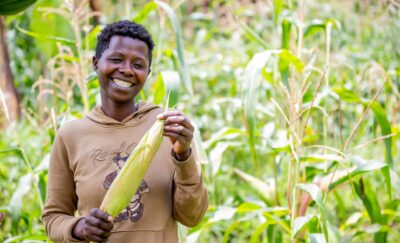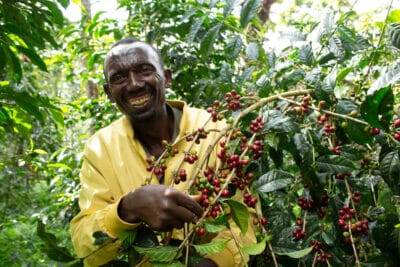News
17 January 2024
Farm Africa and NFU parliamentary reception highlights climate challenges facing small-scale farmers
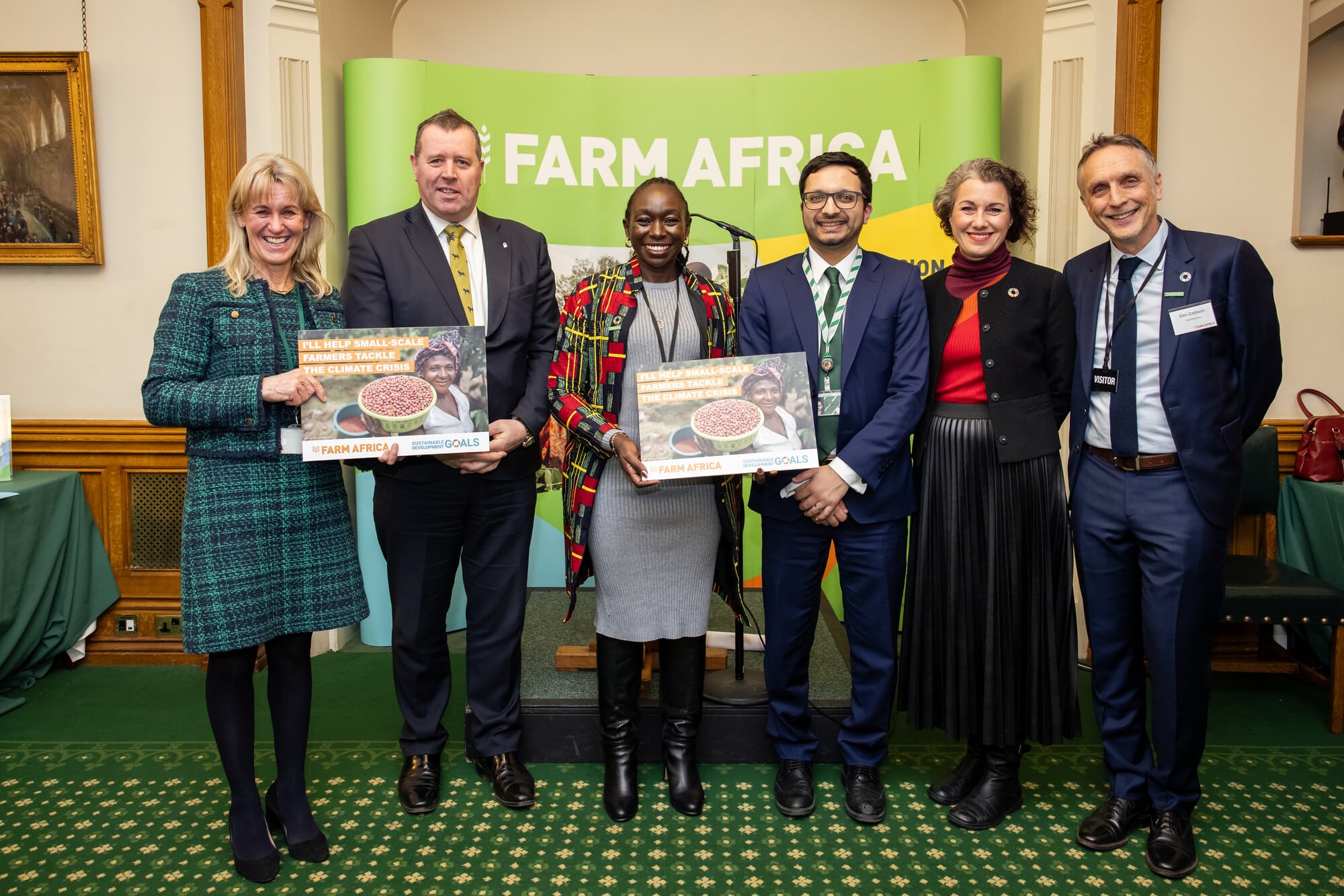
From left to right: Minette Batters, President of the National Farmers Union; Mark Spencer MP, Minister for Food, Farming and Fisheries; Dr Diana Onyango, Head of Technical Team at Farm Africa; Saqib Bhatti MP and sponsor of the event; Sarah Champion, MP and Chair of the International Development Committee; Dan Collison, Farm Africa Chief Executive.
Farm Africa was delighted to join forces with the National Farmers’ Union (NFU) to hold a parliamentary reception on 16 January focusing on the importance of sustainable agriculture.
The reception, which was sponsored by Saqib Bhatti MP, highlighted the need to support smallholder farmers worldwide in tackling the climate crisis.
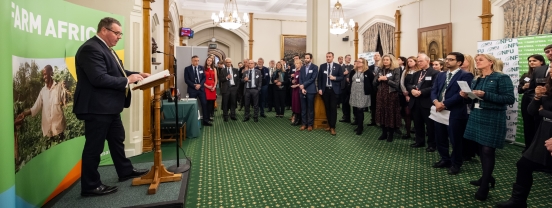
Speeches by Mark Spencer MP, Minister for Food, Farming and Fisheries; Minette Batters, President of the National Farmers Union; Sarah Champion MP, Chair of the International Development Committee; and Dr Diana Onyango, Head of Technical Team at Farm Africa offered reflections on the challenges facing farmers worldwide.
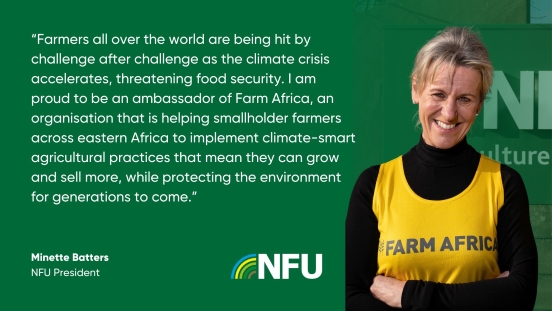
Smallholder farmers make up the majority of the world’s poorest people. And they produce the majority of food in developing countries. Yet it is they who are bearing the brunt of the climate crisis, with very little support to adapt to extreme weather events. The percentage of global climate finance reaching smallholder farmers is falling, and is now just 0.8%.
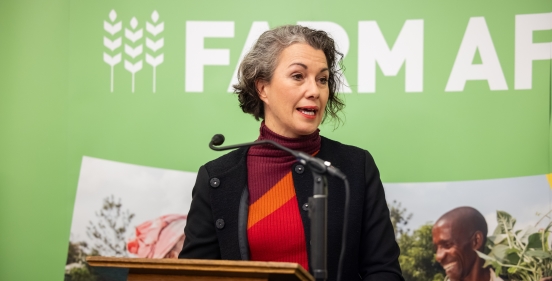
The UK Government’s new White Paper on International Development sets out a roadmap until 2030, the end date of the UN’s Sustainable Development Goals (SDGs), which aim to end poverty, protect the planet and ensure that all people enjoy peace and prosperity.
The goal of UK international development is to end extreme poverty and tackle climate change and biodiversity loss. The White Paper recognises that achieving this goal and meeting the SDGs is only possible if all countries achieve sustainable and inclusive economic growth. It reiterates the UK’s commitment to leaving no-one behind.
The White Paper acknowledges the role of agricultural sector growth as one of the most effective ways of reducing poverty in low-income countries.
At the event, Farm Africa called for support for the agricultural sector to focus on:
1. Increasing climate finance for smallholder farmers
Support for climate adaptation should be targeted to reach those producing most of the food in the Global South: smallholder farmers.
2. Prioritising support for female smallholder farmers
Women are more vulnerable to the effects of climate change as they are often responsible for fetching food, water and fuel for their families. However, rural women are largely left out of climate finance activities and are underrepresented in climate policy decision-making. Closing the gender gap in access to resources, services and decision-making is necessary in order to enhance smallholder farmers’ capacity to adapt to climate change.
3. Helping smallholder farmers engage with markets
Smallholder farmers need access to markets to be able to secure finance to fund investment in climate adaptation, secure inputs such as drought-tolerant seeds, and sell their produce to justify investing in increasing productivity in the face of climate change.
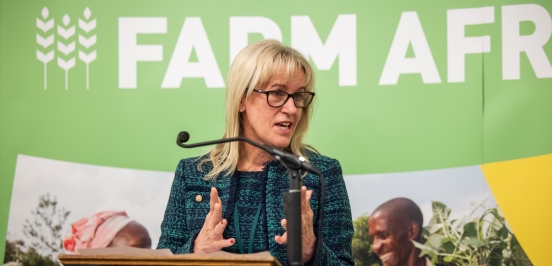
Minette Batters, President of the NFU and a Farm Africa ambassador, commented: “Farmers all over the world are being hit by challenge after challenge as the climate crisis accelerates, threatening food security. I am proud to be an ambassador of Farm Africa, an organisation that is helping smallholder farmers across eastern Africa to implement climate-smart agricultural practices that mean they can grow and sell more, while protecting the environment for generations to come.”
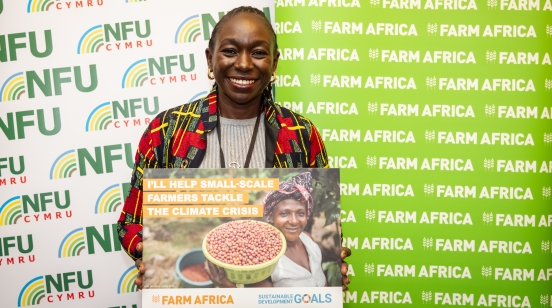
Dr Diana Onyango, Head of Technical Team at Farm Africa, who spoke at the parliamentary reception, added: “Across eastern Africa, smallholder farmers, the people most likely to be living in extreme poverty, are being left on their own to adapt to a climate crisis they did not create. The SDGs are significantly off-track. Poverty is rising not falling. One billion people live with severe food insecurity. Getting the SDGs back on track means supporting smallholder farmers, especially female farmers who are most affected by the climate crisis.”

